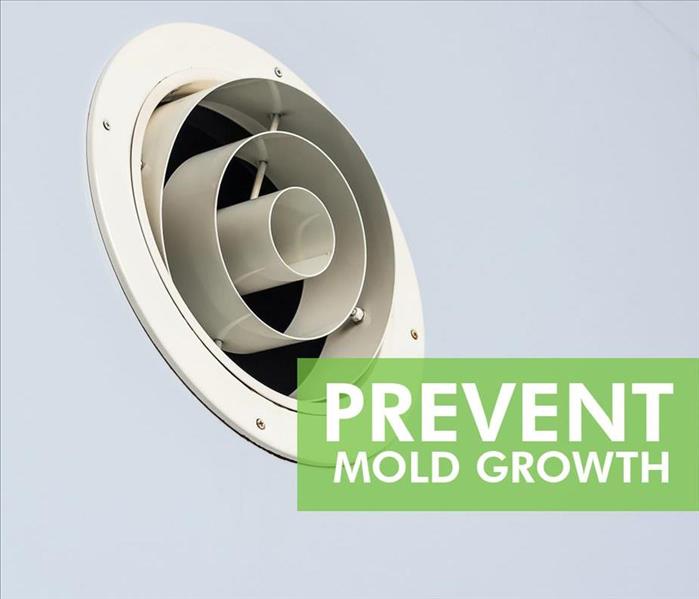Mold FAQs
7/23/2019 (Permalink)
There is a lot to learn about mold growth in Mohawk, TN, especially if you’re dealing with remediation in a high-traffic area of a building. It is recommended by the CDC to deal with the source of the problem as soon as possible to prevent further damage. The EPA also provides cleanup guides for schools and commercial buildings.
What Is Mold and Where is It Found?
Mold is a type of fungus that can be found in areas with high humidity and almost anywhere that is warm and damp such as compost piles and cut grass, or bathrooms and basements. But some mold spores can survive in dry conditions for a period of time. Common places you can find mold include:
- Greenhouses
- Saunas
- Poorly insulated or poorly ventilated summer homes
- Construction areas
How can mold affect indoor air quality?
Airborne mold spores can have a significantly negative effect on indoor air quality, so it’s very important to get the source of the mold under control, especially where many people spend a lot of time on a daily basis. The severity of the problem depends on the type of mold and how widespread the initial source of the issue is.
How can I fix damage caused by water damage and mold growth?
If permanent damage has been done, it’s hard to determine how far the mold growth has infiltrated the structure of the building without an inspection by a mold remediation professional. It is recommended that you let a mold specialist do any structural repairs, such as replacing drywall, because mold spores can become airborne and spread easily.
How can I prevent future mold growth?
There are many things that can be done to prevent future mold growth, or at least keep levels manageable. The EPA provides tips about preventing mold and a guide on remediation for commercial buildings.
Improve ventilation, especially in high moisture areas such as bathrooms.
Clean bathrooms with products that are proven to kill mold.
Avoid carpeting bathrooms, kitchens, and basements. Replace carpet and upholstery that has been wet for a period of time (it doesn’t take long for mold to start growing).
Reduce indoor humidity to 30-60% using de-humidifiers and air conditioners.
Utilizing the expertise of a professional is the safest way to handle a mold problem. Because spores grow and spread so quickly, it is a time-sensitive issue, especially if water damage is new and hasn’t had a chance to set into the building structure.

 24/7 Emergency Service
24/7 Emergency Service
